As the debate around climate change and agriculture gets hotter, this year’s Farming for Nature awards have perhaps never been as important, showcasing a landscape where viable farming and nature work in harmony with each other. Contestants range from sheep and dairy farmers to a horticulture operator generating €60,000 a year from 16 acres. There will be food for thought for both farmers and non-farmers from this year’s lineup of contestants so be sure to go on to the Farming for Nature website to get voting.
The project co-ordinator Brigid Barry said they were delighted with the broad spectrum of farmers involved in the competition.
“Farming is at the coalface of climate change and we feel that the farmers involved in the competition are working really hard to implement positive changes to help combat this global crisis while showcasing that farming has a vital role in nature and biodiversity.”
John McHugh, organic dairy farm, Co Laois
John McHugh runs a 230-acre organic dairy farm in Co Laois having moved away from conventional dairy farming in 2015.
His farm has adapted from a commodity- and profit-driven system of dairy farming to one that is focused on family succession, long-term environmental goals, and connecting his community to nature. He has embraced permaculture, converting pastures to agroforestry and lining cow roadways with fruit and nut trees. John introduced pigs and oats, which are sold to Flahavans. In 2018 he opened the farm up to others with the Clondarrig community farm project.
The Shackleton family, organic beef and lamb farm, Co Cavan

The Shackleton family.
The Shackleton family farm 320 acres in Co Cavan and have been producing organic grass-fed beef and lamb since 1996.
Grazing traditional breeds Aberdeen Angus and Belted Galloway run across 60ha of the farm there is also 5ha of semi-natural habitats including bogs, wetland, woodland, hedgerows, hay meadows and stonewalls. The farm has a 20ha mixed conifer and hardwood woodland which is managed as agroforestry. It also has a traditional orchard, bee hive and is self-sufficient in vegetables.
Jim Cronin, organic market garden farm, Co Clare

Jim Cronin.
Jim Cronin has a 16-acre organic market garden farm in Co Clare. He has been using biological agriculture principles for the last 30 years alongside many traditional farming methods.
Jim’s farming ethos is entwined with nature conservation. He creates a habitat for pollinators and wildlife but also for all the unseen worms and micro-organisms which are fundamental to growing crops. He grows large crops of cosmos and sweet pea to attract pollinators and encourages aphid eating insects by growing marigolds through his potatoes.
Stephen Morrison, suckler farm, Co Kildare

Stephen Morrison.
Stephen Morrison and his family live on the 300-acre farm near Kill, Co Kildare, and are the third generation to farm there.
Stephen is a full-time suckler farmer with 80 cows, taking all progeny to finish. He is not organic but is transitioning away from inputs. He also has a tillage and forestry enterprise. He has dug out a network of ponds to provide a habitat of any aquatic species, planted 18ac of native woodlands and has 2ac of wild bird cover.
Sinead Moran and Michael McGrath, micro-dairy farm, Co Mayo

Sinead Moran and Michael McGrath, micro-dairy farm, Co Mayo.
Sinéad Moran and Michael McGrath own a micro-dairy with a herd of traditional breed cows on 40 acres of high-nature-value farmland in Co Mayo.
They sell raw organic milk direct to customers. They are passionate about conserving the species-rich grass, mature trees and both retaining and enhancing biodiversity that is found on their farm.
The land has an old orchard, an old cottage, granary and mature trees dominate all but a few boundaries.
Andrew Bergin, tillage farm, Co Kildare

Andrew Bergin.
Andrew Bergin farms 320 acres of tillage ground in Co Kildare. He has been practising no-till cereals for a number of years, while managing the soil to promote high levels of biological benefits.
Andrew sows cover crops, and is constantly trialling what species work best for his soil and rotation. This is an integral part that has allowed him practise a system that benefits both the environment and the farmer.?
Integrated crop management is practised to minimise the use of sprays – no insecticides have been used in the last five years
Trevor Harris, mixed farm and horticulture, Co Kildare

Trevor Harris.
Trevor Harris runs two farms in Co Kildare. The home farm consists of an organic cattle and sheep system. The beef is sold direct to customers and the lamb to a processor. There is also 12 acres of forestry and 40 acres of cereal with Trevor’s oats sold to Flavahan’s and his barley to make whiskey.
The second farm is horticultural land, made up of 14 acres outdoors and 1,500sq metres indoors. He grows vegetables for six restaurants in Dublin, a box scheme, and retail.
Thomas Keane, hill sheep farm, Co Galway

Sheep farmer Thomas Keane from Galway.
Thomas Keane farms in the Dawros catchment in Connemara, Co Galway. He farms 160 mountain ewes on high-nature-value peatlands and wet grasslands.
Tom’s system of farming has maintained and enhanced large areas of active Atlantic blanket bog. He is a participant in the Pearl Mussel Project EIP that rewards farmers for the ecological quality of their land, contributing to the pristine water quality needed by the mussel. He scored 10/10 on the Pearl mussel peatland score card for much of his land.
VOTING: Voting closes on Friday 23 October at midnight and the winner of the public vote will be announced on Saturday 24 October at the annual Burren Winterage School. You can vote online at farmingfornature.ie
Read more
Calls for clarity as Sheep Welfare Scheme due to end
Farming population is highly vulnerable to COVID-19 – Teagasc
As the debate around climate change and agriculture gets hotter, this year’s Farming for Nature awards have perhaps never been as important, showcasing a landscape where viable farming and nature work in harmony with each other. Contestants range from sheep and dairy farmers to a horticulture operator generating €60,000 a year from 16 acres. There will be food for thought for both farmers and non-farmers from this year’s lineup of contestants so be sure to go on to the Farming for Nature website to get voting.
The project co-ordinator Brigid Barry said they were delighted with the broad spectrum of farmers involved in the competition.
“Farming is at the coalface of climate change and we feel that the farmers involved in the competition are working really hard to implement positive changes to help combat this global crisis while showcasing that farming has a vital role in nature and biodiversity.”
John McHugh, organic dairy farm, Co Laois
John McHugh runs a 230-acre organic dairy farm in Co Laois having moved away from conventional dairy farming in 2015.
His farm has adapted from a commodity- and profit-driven system of dairy farming to one that is focused on family succession, long-term environmental goals, and connecting his community to nature. He has embraced permaculture, converting pastures to agroforestry and lining cow roadways with fruit and nut trees. John introduced pigs and oats, which are sold to Flahavans. In 2018 he opened the farm up to others with the Clondarrig community farm project.
The Shackleton family, organic beef and lamb farm, Co Cavan

The Shackleton family.
The Shackleton family farm 320 acres in Co Cavan and have been producing organic grass-fed beef and lamb since 1996.
Grazing traditional breeds Aberdeen Angus and Belted Galloway run across 60ha of the farm there is also 5ha of semi-natural habitats including bogs, wetland, woodland, hedgerows, hay meadows and stonewalls. The farm has a 20ha mixed conifer and hardwood woodland which is managed as agroforestry. It also has a traditional orchard, bee hive and is self-sufficient in vegetables.
Jim Cronin, organic market garden farm, Co Clare

Jim Cronin.
Jim Cronin has a 16-acre organic market garden farm in Co Clare. He has been using biological agriculture principles for the last 30 years alongside many traditional farming methods.
Jim’s farming ethos is entwined with nature conservation. He creates a habitat for pollinators and wildlife but also for all the unseen worms and micro-organisms which are fundamental to growing crops. He grows large crops of cosmos and sweet pea to attract pollinators and encourages aphid eating insects by growing marigolds through his potatoes.
Stephen Morrison, suckler farm, Co Kildare

Stephen Morrison.
Stephen Morrison and his family live on the 300-acre farm near Kill, Co Kildare, and are the third generation to farm there.
Stephen is a full-time suckler farmer with 80 cows, taking all progeny to finish. He is not organic but is transitioning away from inputs. He also has a tillage and forestry enterprise. He has dug out a network of ponds to provide a habitat of any aquatic species, planted 18ac of native woodlands and has 2ac of wild bird cover.
Sinead Moran and Michael McGrath, micro-dairy farm, Co Mayo

Sinead Moran and Michael McGrath, micro-dairy farm, Co Mayo.
Sinéad Moran and Michael McGrath own a micro-dairy with a herd of traditional breed cows on 40 acres of high-nature-value farmland in Co Mayo.
They sell raw organic milk direct to customers. They are passionate about conserving the species-rich grass, mature trees and both retaining and enhancing biodiversity that is found on their farm.
The land has an old orchard, an old cottage, granary and mature trees dominate all but a few boundaries.
Andrew Bergin, tillage farm, Co Kildare

Andrew Bergin.
Andrew Bergin farms 320 acres of tillage ground in Co Kildare. He has been practising no-till cereals for a number of years, while managing the soil to promote high levels of biological benefits.
Andrew sows cover crops, and is constantly trialling what species work best for his soil and rotation. This is an integral part that has allowed him practise a system that benefits both the environment and the farmer.?
Integrated crop management is practised to minimise the use of sprays – no insecticides have been used in the last five years
Trevor Harris, mixed farm and horticulture, Co Kildare

Trevor Harris.
Trevor Harris runs two farms in Co Kildare. The home farm consists of an organic cattle and sheep system. The beef is sold direct to customers and the lamb to a processor. There is also 12 acres of forestry and 40 acres of cereal with Trevor’s oats sold to Flavahan’s and his barley to make whiskey.
The second farm is horticultural land, made up of 14 acres outdoors and 1,500sq metres indoors. He grows vegetables for six restaurants in Dublin, a box scheme, and retail.
Thomas Keane, hill sheep farm, Co Galway

Sheep farmer Thomas Keane from Galway.
Thomas Keane farms in the Dawros catchment in Connemara, Co Galway. He farms 160 mountain ewes on high-nature-value peatlands and wet grasslands.
Tom’s system of farming has maintained and enhanced large areas of active Atlantic blanket bog. He is a participant in the Pearl Mussel Project EIP that rewards farmers for the ecological quality of their land, contributing to the pristine water quality needed by the mussel. He scored 10/10 on the Pearl mussel peatland score card for much of his land.
VOTING: Voting closes on Friday 23 October at midnight and the winner of the public vote will be announced on Saturday 24 October at the annual Burren Winterage School. You can vote online at farmingfornature.ie
Read more
Calls for clarity as Sheep Welfare Scheme due to end
Farming population is highly vulnerable to COVID-19 – Teagasc










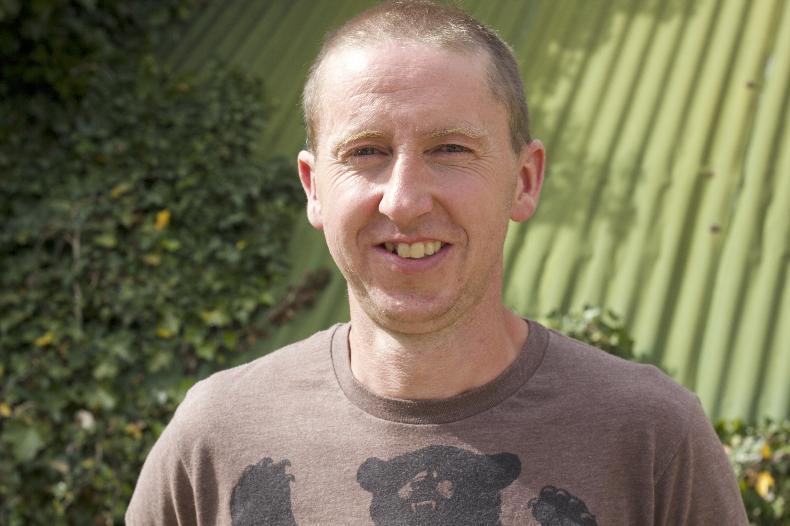
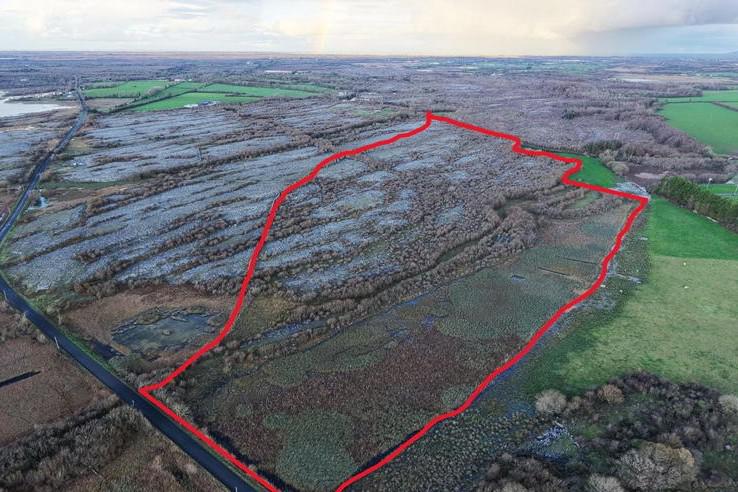

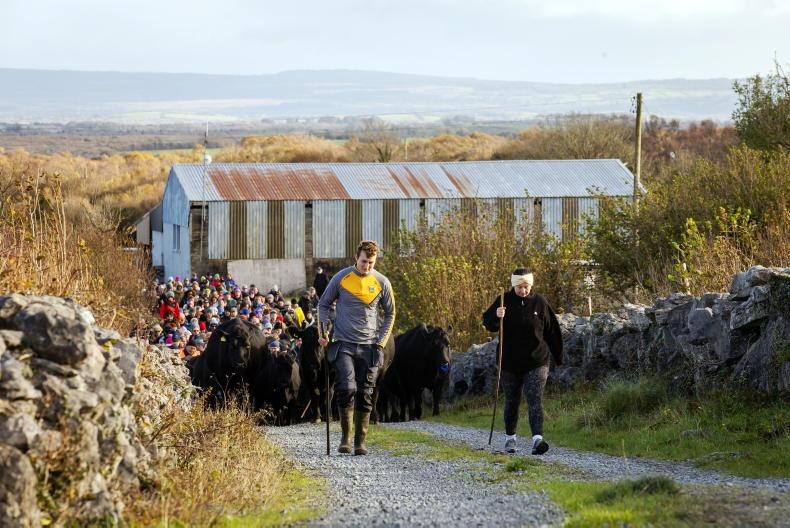
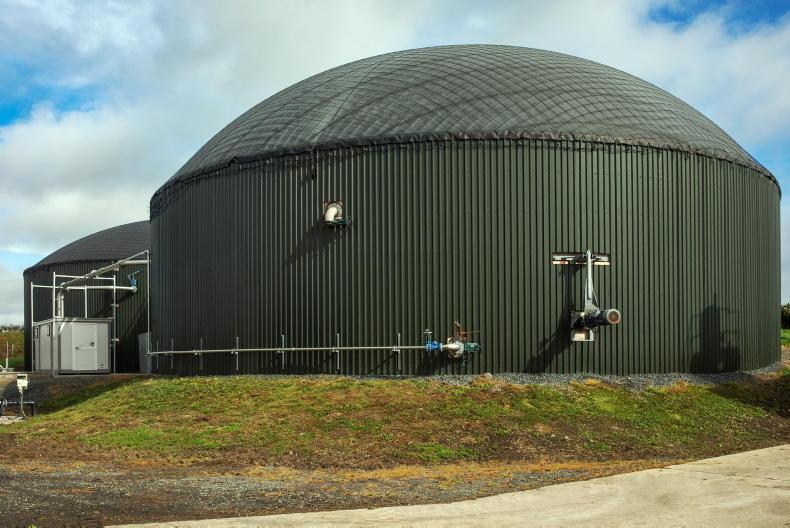
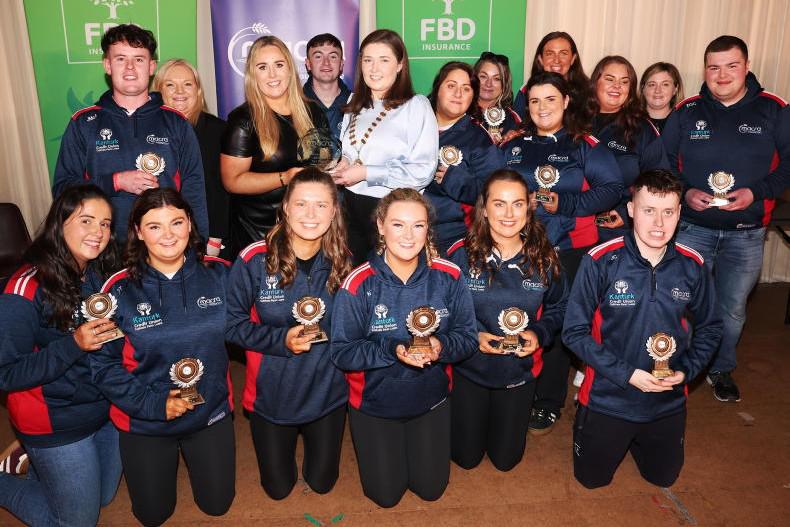
SHARING OPTIONS